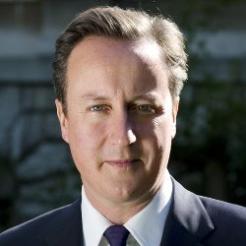The Prime Minister has announced a £5m fund for charities and community organisations willing to form part of a counter-extremism drive, but the Muslim Council of Britain has expressed concern about the new strategy.
The fund forms part of the government’s Counter-Extremism Strategy that was published today. It will provide money to support practical measures to support community groups which are working to combat extremism.
Examples given by the government were providing social media training, technical assistance to set up a charity website and funding for specific projects.
David Cameron said the aim of the strategy is to counter extremist ideology by “actively supporting the mainstream voices to rise above those of the extremists”. And that: “At the core is building a national coalition of all those individuals and groups who are united in their determination to defeat extremism and build a more cohesive society.”
Last week Cameron hosted the first meeting of a Community Engagement Forum which includes around 30 multi-faith representatives.
MCB calls for clarity
The Muslim Council of Britain, an umbrella group for Mosques, charities and schools, criticised today's announcement, saying that by focusing on Muslims, it could be “counter-productive”.
Shuja Shafi, secretary general of MCB, said the strategy “risks being counter-productive by alienating the very people needed to confront Al-Qaeda or Daesh-related terrorism: British Muslim communities”.
He said: “Whether it is in mosques, education or charities, the strategy will reinforce perceptions that all aspects of Muslim life must undergo a ‘compliance’ test to prove our loyalty to this country. These measures could be seen more as a means to address the anxieties a minority of people may have against Muslims and their religious life, rather than the scourge of terrorism itself.”
Shafi called for the distribution of the £5m funding to be “transparent”. And added that there needs to be “clarity” around whether the new strategy was about empowering civil society or improving security.
“The former requires long-term capacity building and empowerment of Muslim civil society organisations and addressing structural socio-economic imbalances; the latter is about preventing criminality and enforcing the law. To lump both in one programme of action is not logical,” he said.









